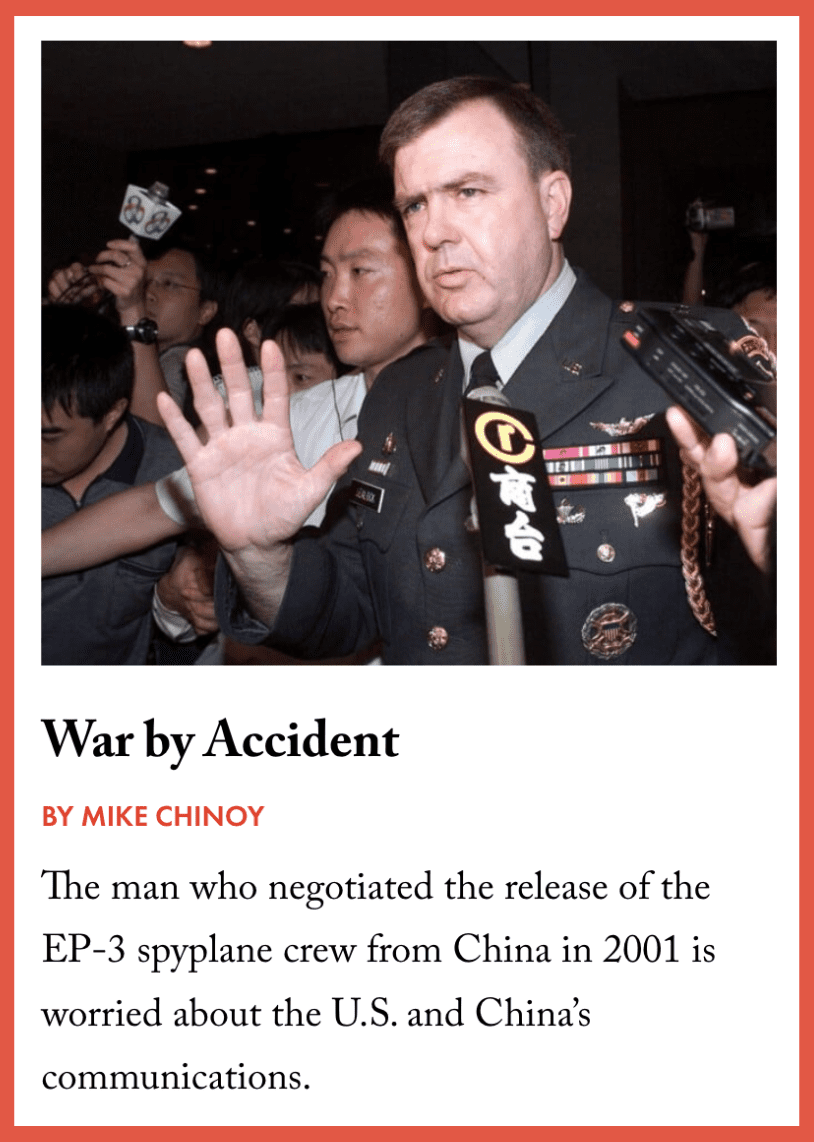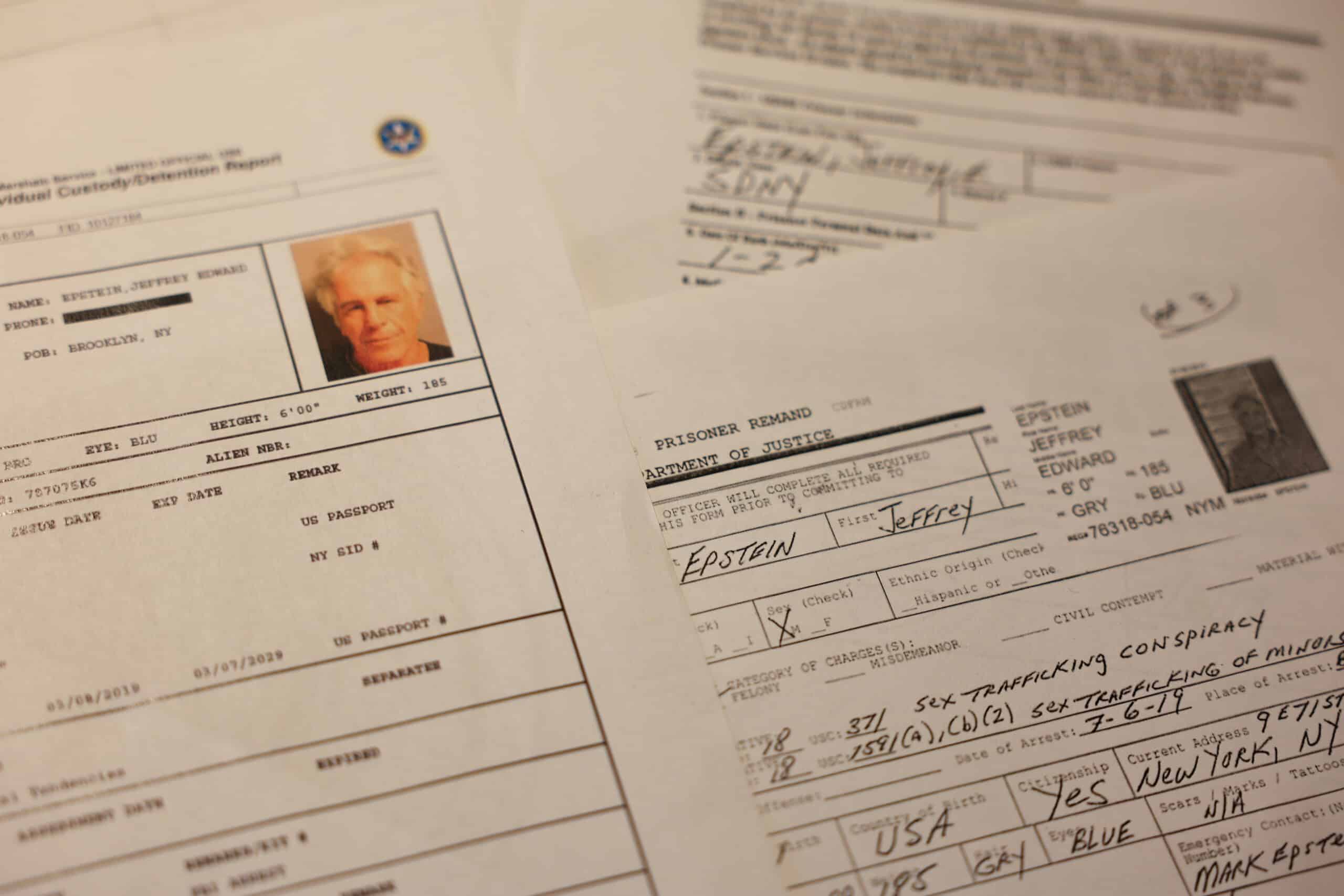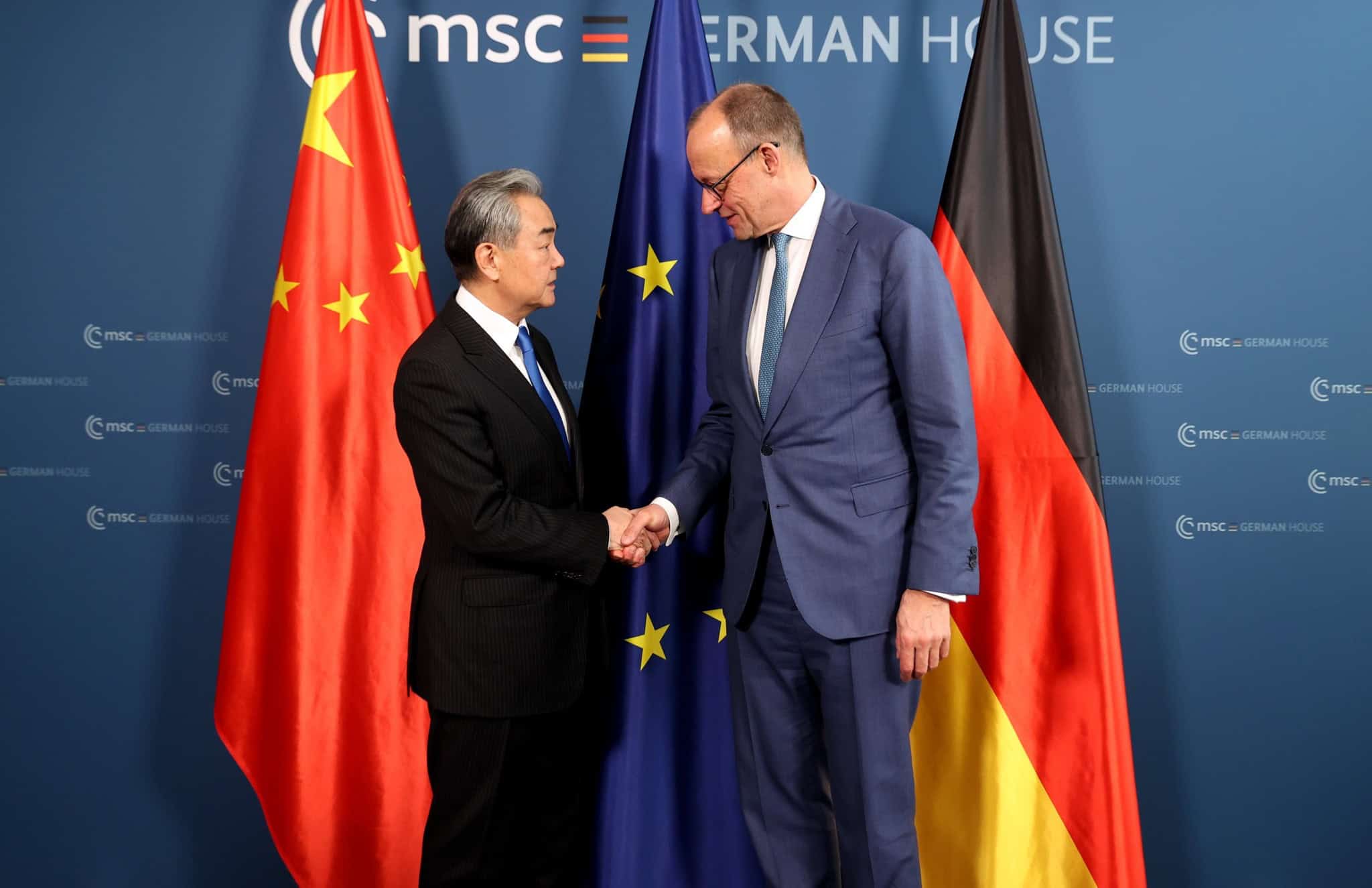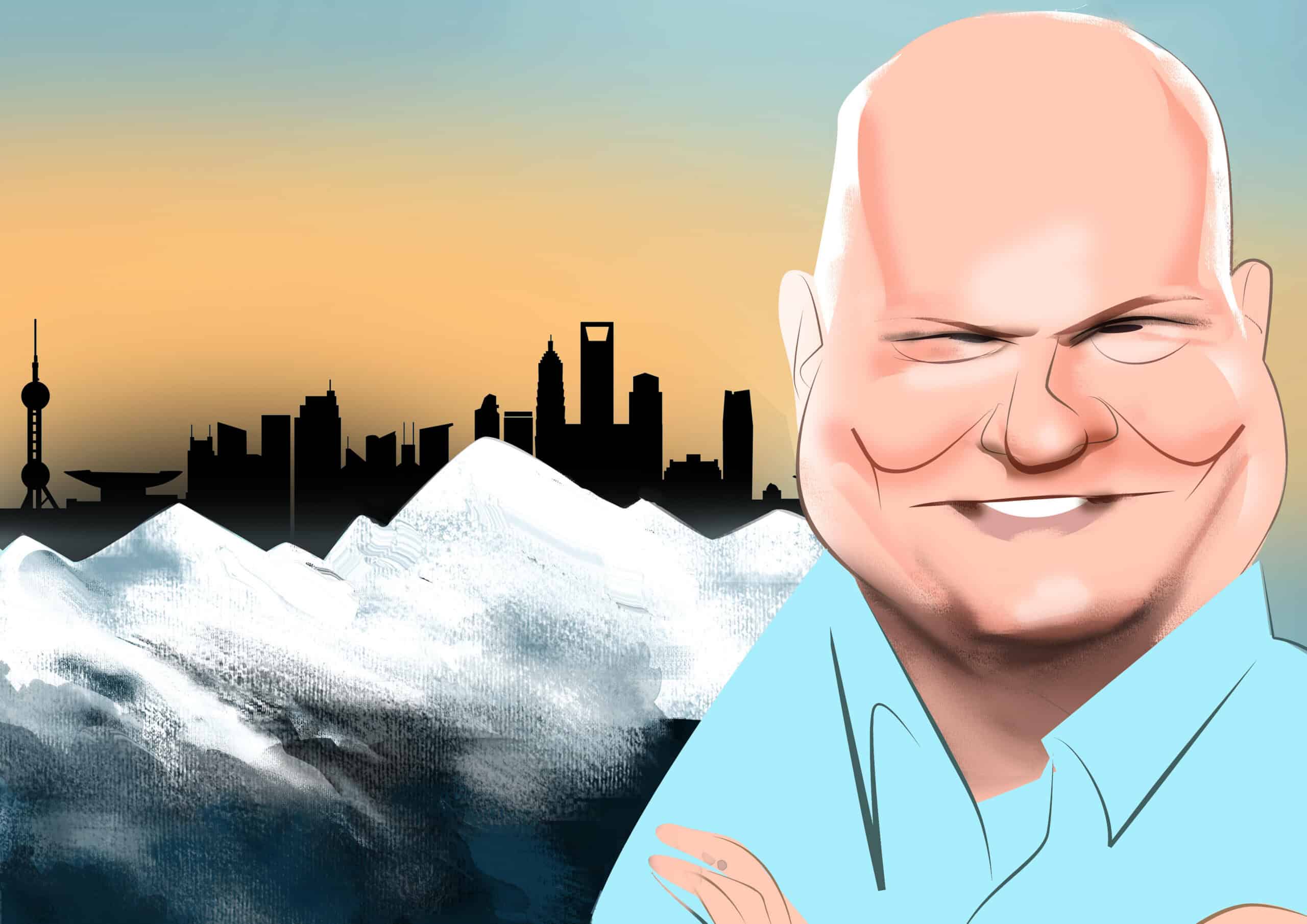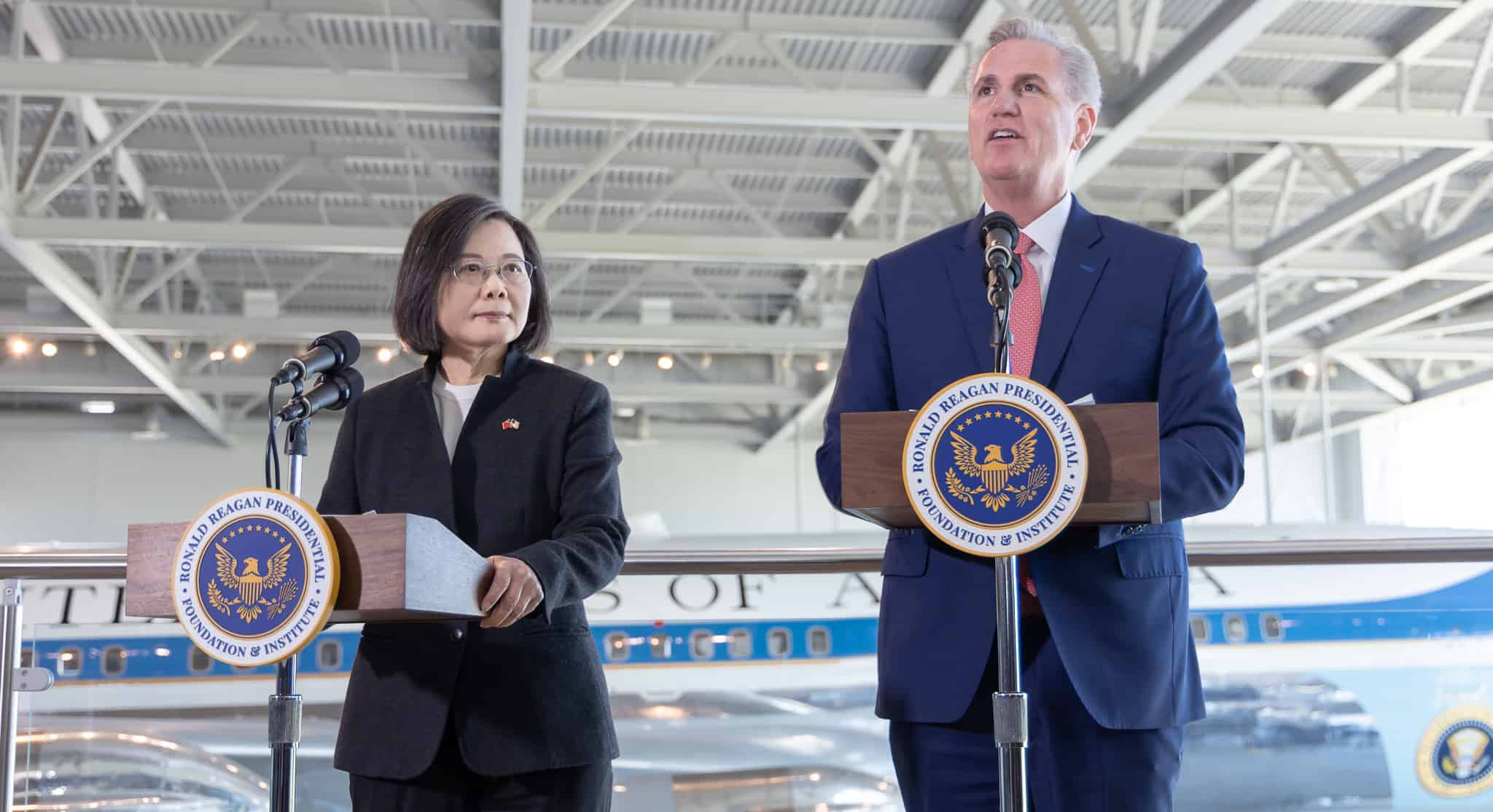
There is growing concern among the American public about rising tensions between China and Taiwan, according to a recent Pew Research Center poll. Pew reports “nearly half of U.S. adults (47 percent) say tensions between mainland China and Taiwan are a very serious problem for the United States, up 4 percentage points since October 2022 and 19 points since February 2021.”
It is not just the American public that has been registering alarm. A number of 4-star generals and admirals have speculated publicly about timelines for a potential Chinese invasion of Taiwan, with several warning of a Chinese invasion between 2023-2027. President Biden has declared on four occasions that the United States would come to Taiwan’s defense in the event of an attack.
Beijing’s increasing military intimidation of Taiwan has sparked this spiral of rising tensions and accompanying alarm in the United States. The People’s Liberation Army’s escalating military operations around Taiwan in recent years have included regular penetrations of the Taiwan Strait centerline, frequent military intrusions into Taiwan’s air defense identification zone, and even missile overflights of Taiwan following then-Speaker Pelosi’s August 2022 visit. China’s threats and threatening actions have taken on increased urgency after Russia’s invasion of Ukraine. Putin’s barbarism has provided a sobering reminder of the risks from authoritarian powers with revanchist ambitions.
To fixate on a future military scenario without also focusing on the campaign of coercion without violence that is already underway against Taiwan would be to do a tremendous disservice to America’s interests in Asia.
These events raise the specter of direct conflict between the United States and China. If it occurs, it would mark the first occasion in human history when two nuclear-armed powers with long-range strike, space, and cyber capabilities enter into direct conflict against each other.
Given the stakes, a clear understanding of the nature of the Taiwan challenge is essential. So, too, is a precise strategy for protecting American interests. Troublingly, though, the scattershot nature of public comments and casual warnings of war by America’s top elected and appointed officials has not lent confidence that the United States has a tight theory of the case for protecting America’s vital interests and those of its partners in Taiwan.
Taiwan’s security is a strategic challenge for the United States. This challenge has a military component, but it is not exclusively a military problem. At the same time as China is developing military capabilities for cross-Strait contingencies, it also is employing a strategy of coercion without violence to seek to wear down the Taiwan people’s faith in their government and their resolve to defend their way of life. This is not a hypothetical future campaign, like a military assault on Taiwan. Rather, it is an ongoing everyday reality. China is employing diplomatic, military, and economic pressure; cyber and disinformation campaigns; political interference; and united front tactics to chip away at the confidence of the people of Taiwan in their future.
U.S. policymakers and the U.S. public whom they represent must develop a deeper understanding of the sharpest stresses on Taiwan and the best tools for countering them. For the United States, sustaining military deterrence is the minimum threshold, not the measure of success. China already is embarked on an aggressive, multidimensional campaign that seeks to annex Taiwan without use of force, even as Beijing continues to build up its military capabilities to preserve the option of use of force if all other approaches fail. To fixate on a future military scenario without also focusing on the campaign of coercion without violence that is already underway against Taiwan would be to do a tremendous disservice to America’s interests in Asia.
The proximate goal of American strategy is not to deny Taiwan to China or to treat Taiwan as an instrument for inflicting strategic pain on China. In addition to denying agency to the Taiwan people, such approaches would only accelerate the United States and China toward a conflict that would do immeasurable harm to American interests and to the lives of Taiwan’s people. Rather, the goal of American strategy is to seek to slow the spiral of escalating tensions and to keep America’s strategy and policy centered on its abiding interests in preserving peace and stability in the Taiwan Strait. Doing so requires properly diagnosing the threats facing Taiwan and the range of military and nonmilitary tools available to the United States, Taiwan, and others to counter them.
Washington, Taipei, and others will need to step up efforts to strengthen deterrence against China seeking to annex Taiwan by force. As part of such efforts, they will need to identify credible ways to remind Beijing of China’s indivisible vulnerabilities, including its access to energy, technology, food, and global financial markets. Moreover, in addition to credible threats, effective deterrence requires credible assurances, as the game theorist Thomas Schelling wrote.
There are justifiable reasons for rising public alarm about Taiwan. Now it is time to harness that alarm to concentrate minds on America’s top objectives in Taiwan and how best to advance them.
But even those actions are not sufficient; policymakers in Washington and Taipei also will need to keep an eye focused on the larger strategic picture. The prospect of war is not the only threat confronting Taiwan. American policy and strategy must concentrate on countering both Chinese paths in pursuit of unification to sustain stability and prevent conflict in the Taiwan Strait.
Ultimately, America will be capable of exercising the greatest influence over events in the Taiwan Strait if it maintains the initiative and resists fatalistic assumptions about the inevitability of conflict. There is no preset path for the future of the Taiwan Strait. Assuming current trend lines lead inextricably to war requires willful ignorance of recent history. Relations between the United States and Taiwan have constantly adapted to changing circumstances, just as cross-Strait relations have ebbed and flowed.
There are justifiable reasons for rising public alarm about Taiwan. Now it is time to harness that alarm to concentrate minds on America’s top objectives in Taiwan and how best to advance them.
Portions of this op-ed are excerpted from U.S.-Taiwan Relations: Will China’s Challenge Lead to a Crisis? This book by Ryan Hass, Bonnie Glaser, and Richard Bush was released by Brookings Institution Press on April 15.
Click here to read Garrett O’Brien’s Q&A with Bonnie Glaser for The Wire China.

Ryan Hass is the is the Chen-Fu and Cecilia Yen Koo Chair in Taiwan Studies at the Brookings Institution, and a nonresident affiliated fellow in the Paul Tsai China Center at Yale Law School.

Bonnie Glaser is the director of the Asia Program at the German Marshall Fund of the United States. She was previously a senior adviser for Asia and the director of the China Power Project at the Center for Strategic and International Studies.

Richard Bush is a nonresident senior fellow in the Center for East Asia Policy Studies (CEAP) at Brookings, and the author of seven books, including most recently, Difficult Choices: Taiwan’s Quest for Security and the Good Life (Brookings Press, 2021).

